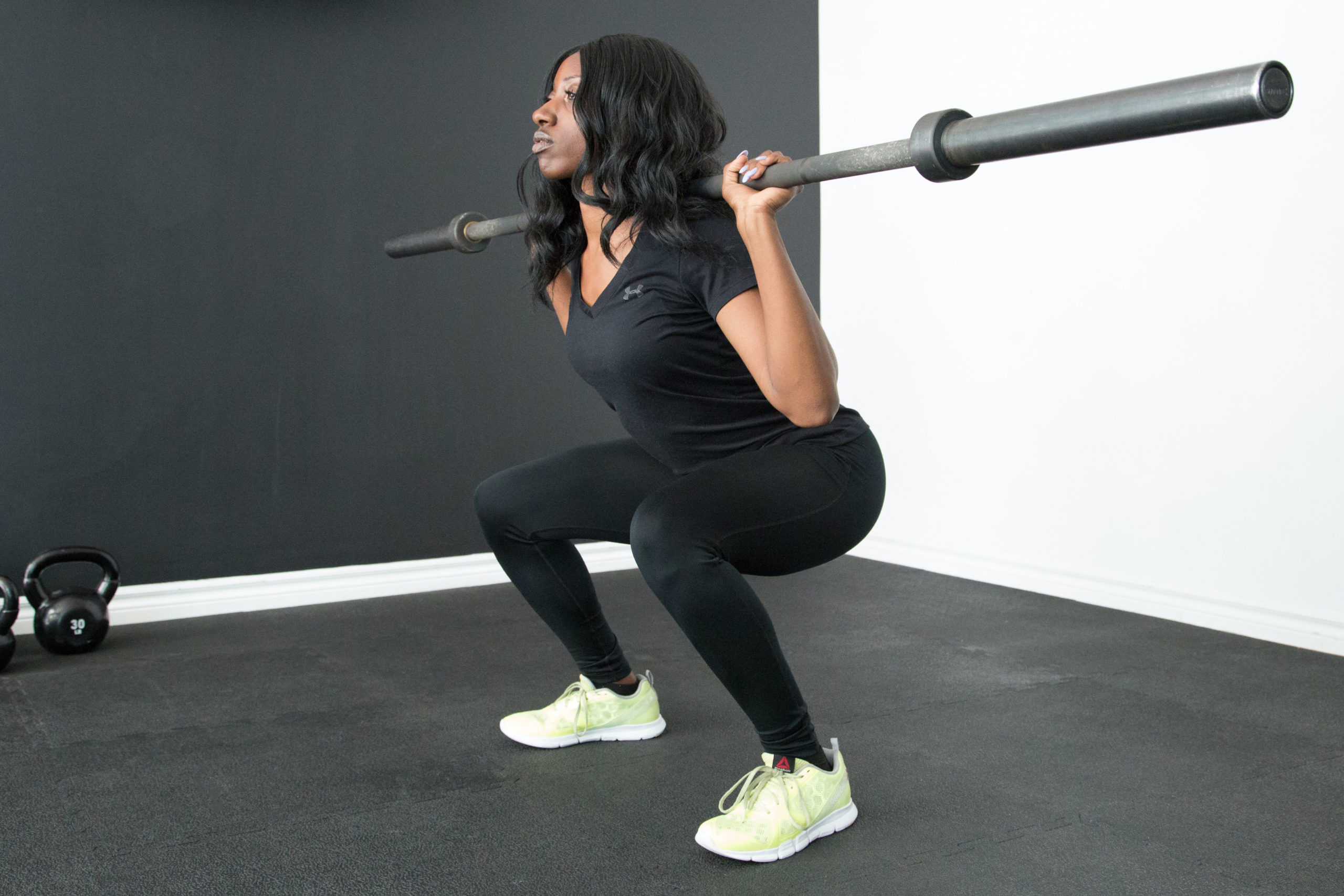Is Squatting Bad for Your Knees?
 When it comes to squatting, it is likely you have heard “don’t let your knees go past your toes” or “deep squats are bad for your knees.” The good news is, those are myths, and we should not fear these movements!
When it comes to squatting, it is likely you have heard “don’t let your knees go past your toes” or “deep squats are bad for your knees.” The good news is, those are myths, and we should not fear these movements!
Myth #1: Squats Past 90 Degrees are Bad for Your Knees
First, squatting (especially deep squatting) is a vital movement from when we are born (at least when we start standing and walking). Watch kids squat, they have excellent form, and we should be able to perform squats most of our life. It has been recommended to perform half or quarter squats to avoid injury, despite the research revealing that is not completely true. In a recent study, the authors looked at different depths of squats to see if there was more risk for injury when squatting past 90 degrees of knee flexion. What they found is that there is no evidence that squatting, especially below 90 degrees, is damaging to knees.
Myth #2: Squatting with Your Knees Over Toes is Bad for Your Knees
Secondly, for those who fear squatting with knees over toes, that is also a functional movement we do every day from getting up out of a chair or going downstairs! I have seen many clients in the clinic where squatting with knees over toes can be uncomfortable or painful. That is common to see. So, what happens when we squat with knees over toes? Your knees go past your toes! But also, it adds more tension at your knee joint, in which your quadriceps (thigh muscles) must work harder to do that movement. Is that extra tension bad? As with most things, too much of anything your body is not ready for will lead to pain or discomfort.
Our bodies may alert us if we are not ready for a movement if getting into a deep squat or having knees go over toes in a squat is difficult or painful. It may mean your body isn’t ready to do that… yet. It is something your body is capable of! In addition, it is not impossible to load your knees when you have diagnoses like meniscal tears, ligamentous injuries, or chondromalacia patella (wear and tear of the cartilage under the knee cap). It may take a slower progression and approach with supervision to be able to do squats well! However, our bodies are resilient and very capable of getting stronger over time with ample load. That’s where making an appointment with an adult physical therapist at MOSAIC can safely help you to build tolerance to perform squats.
In conclusion, deep squatting or squatting with knees over toes is not damaging to our knees. It takes slowly progressing your legs to gain strength and control to perform movements that require squatting with less discomfort.
